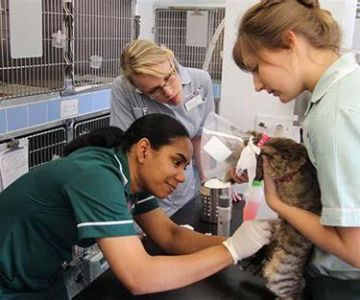- 1-Overview-of-Veterinary-Career-Costs
- 2-Breakdown-of-Veterinary-School-Tuition-and-Fees
- 3-Additional-Expenses-to-Consider-When-Becoming-a-Vet
- 4-Real-Stories-on-Veterinary-School-Financial-Challenges
- 5-Tips-for-Managing-Vet-School-Costs-and-Financing
- 6-Why-Investing-in-Your-Veterinary-Career-Is-Worth-It
1. Overview of Veterinary Career Costs
If you’re asking yourself how much is it to become a veterinarian, you’re embarking on a journey that requires significant financial investment as well as passion and dedication. Veterinary medicine is a rewarding profession, but the path involves considerable education costs, often higher than many other professional degrees. Understanding the financial landscape early on helps you plan better and avoid surprises.
On average, completing the necessary education and training to become a veterinarian in the United States can cost anywhere from $150,000 to over $300,000 depending on the school, residency status, and additional expenses.
1.1 What Does This Cost Cover?
The total includes veterinary school tuition, fees, textbooks, supplies, and living expenses over typically four years of veterinary education, following completion of a relevant undergraduate degree.
2. Breakdown of Veterinary School Tuition and Fees
Veterinary school tuition varies widely between public and private institutions and whether you are a resident of the state where the school is located. For example:
2.1 Public Veterinary Schools
In-state students often pay between $20,000 and $40,000 annually, while out-of-state students may face $40,000 to $60,000 per year. Schools such as the University of California or University of Florida fall into this range.
2.2 Private Veterinary Schools
Private veterinary colleges like Cornell or Tufts University tend to charge tuition upwards of $50,000 per year regardless of residency status, pushing the total cost significantly higher.
2.3 Additional Fees
Beyond tuition, students encounter costs for health insurance, lab fees, student activity fees, and equipment — these can add several thousand dollars each year.
3. Additional Expenses to Consider When Becoming a Vet
Becoming a veterinarian requires more than tuition. You must also budget for:
3.1 Undergraduate Education
Most vet schools require a bachelor’s degree first, which typically costs $30,000 to $100,000 depending on the institution and residency.
3.2 Living Expenses
Housing, food, transportation, and other personal costs during school years vary by location but can easily add $15,000 to $25,000 annually.
3.3 Exam and Licensing Fees
Licensing exams such as the NAVLE (North American Veterinary Licensing Examination) and state licensing fees are additional costs to factor in.
4. Real Stories on Veterinary School Financial Challenges
Jessica, a recent veterinary graduate, shared that despite scholarships and part-time work, she graduated with over $200,000 in student debt. She emphasized that understanding these costs upfront helped her make strategic financial decisions throughout her studies.
Similarly, Mark recounted his experience attending a private vet school and juggling loans with living expenses. His advice: "Research all financial aid options and speak with alumni to get real insights before committing."
5. Tips for Managing Vet School Costs and Financing
To manage the steep costs of becoming a veterinarian, consider these approaches:
5.1 Scholarships and Grants
Apply aggressively for scholarships offered by schools, veterinary associations, and private foundations.
5.2 Part-Time Work and Internships
Relevant work experience can offset costs and enhance your resume, though balancing work and study requires discipline.
5.3 Loan Repayment Programs
Investigate loan forgiveness programs especially if you plan to work in underserved areas or public veterinary sectors.
6. Why Investing in Your Veterinary Career Is Worth It
Though the question how much is it to become a veterinarian highlights the high financial commitment, the rewards of the profession—helping animals, advancing animal health, and building a meaningful career—often outweigh the costs. Veterinarians enjoy strong job stability, diverse work environments, and the deep satisfaction of making a difference.
If you’re serious about pursuing this path, investing in quality study materials, prep courses, and resources can maximize your chances of success. Exploring programs and products designed to support veterinary students can be a great first step toward your goal.
Ready to take the next step? Discover trusted educational tools and resources tailored for aspiring veterinarians to help you prepare for veterinary school confidently and cost-effectively.











